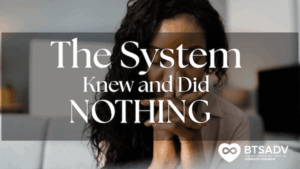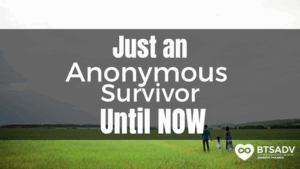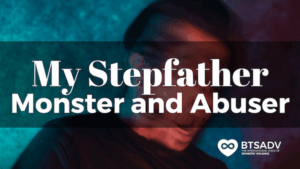By Iris Pendelton
The Deadly Consequences of Domestic Violence: From Homicide to Self-Termination
Domestic violence continues to be a silent epidemic, wreaking havoc on lives and communities. While the immediate effects of abuse—such as physical injuries and emotional trauma—are devastating, the long-term consequences can be even more tragic, often culminating in homicide or self-termination. These heartbreaking outcomes not only shatter families but leave a lasting impact on the broader community.
A Tragic Reality: Homicide in Domestic Violence
Domestic violence often follows a dangerous trajectory, beginning with emotional manipulation and escalating to physical harm. In its most extreme form, this violence can result in homicide. When an abuser feels their control slipping—especially when the victim tries to leave—the risk of lethal violence skyrockets.
Statistics reveal a grim reality: a significant percentage of homicides occur within the context of intimate relationships. According to the National Coalition Against Domestic Violence, a large proportion of homicides/self-terminations involve intimate partners, with women being the overwhelming majority of victims. These numbers highlight the lethal danger victims face, especially during attempts to escape their abusers.
A Local Tragedy: The Loss of a Beloved Zumba Instructor
Earlier this year, our community suffered the heartbreaking loss of a beloved Zumba instructor. Known for her infectious energy and positivity, she spent countless hours helping others find joy through dance, creating a close-knit community. To many, she was the epitome of happiness.
But behind her bright smile was a secret nightmare—she was a victim of domestic violence. Despite her outwardly cheerful demeanor, she endured abuse in silence, trying to protect her loved ones while maintaining a façade of normalcy. Tragically, as she prepared to leave her abusive relationship, the situation escalated, culminating in her untimely death.
This devastating loss serves as a sobering reminder of the dangers victims face when trying to escape an abusive relationship, often the most perilous time.
The Silent Tragedy of Self-Termination
The psychological toll of enduring domestic violence can push victims to the breaking point, leading some to believe that self-termination is their only way out. The isolation, fear, and hopelessness that accompany abuse can become overwhelming, making it difficult for victims to see a way forward.
For many, the fear of retaliation, financial dependency, or concern for their children’s safety paralyzes them. Even with the thought of leaving, the risk of escalating violence can make it seem impossible. In this dark and desperate space, self-termination can appear to be the only option—a heartbreaking final act of control over their own lives.
Stories like this are far too common. Many victims feel trapped and unsupported, having reached out for help only to be dismissed or told to return to their abuser. The stigma surrounding domestic violence further silences victims, making them feel as though there is no escape.
Just recently, a tragic news story emerged about a woman who ended her life after years of abuse from her husband. Despite multiple attempts to seek help, the relentless cycle of violence and manipulation left her feeling utterly hopeless. Her tragic decision is not an isolated incident, but a symptom of the deadly cycle of abuse.
The Importance of Prevention and Support
To prevent these devastating outcomes, we must prioritize prevention, early intervention, and comprehensive support for victims. Education and awareness are essential in breaking the cycle of violence. Communities need to be equipped with knowledge about the signs of abuse and how to help those suffering in silence.
Knowing they are not alone can be lifesaving for victims. Access to safe shelters, legal assistance, counseling, and hotlines is crucial for providing the support needed to escape abusive situations and begin healing.
Connecting victims to mental health services as early as possible is one of the most critical steps in saving lives. Counseling can provide victims with the tools they need to rebuild their self-esteem, cope with their trauma, and envision a future free from abuse. Timely intervention could prevent a tragic outcome, such as a funeral for a loved one lost to violence or self-termination.
A Call for Collective Action
The intersection of domestic violence, homicide, and self-termination is a sobering reminder of the severe consequences of unchecked abuse. As a society, it is imperative that we take action to support victims, hold abusers accountable, and work toward ending domestic violence once and for all.
By raising awareness, advocating for stronger protections, and ensuring access to comprehensive support services, we can prevent these tragic outcomes and save lives. If you or someone you know is experiencing domestic violence, there is help available.
Resources for Support:
- BTSADV Support Line: 1-855-BTS-1777
- National Domestic Violence Hotline: 1-800-799-7233
No one should face abuse alone. Together, we can break the silence, provide hope, and create a safer, brighter future for all.
Keywords: domestic violence prevention, homicide, self-termination, intimate partner violence, abuse survivors, mental health, domestic violence awareness, BTSADV, break the silence, support for victims, ending domestic violence
Hashtags: #BTSADV #BreakTheSilence #EndDomesticViolence #SurvivorSupport #DomesticViolenceAwareness #HomicidePrevention #MentalHealthAwareness #StopTheCycle #YouAreNotAlone #SupportForSurvivors



